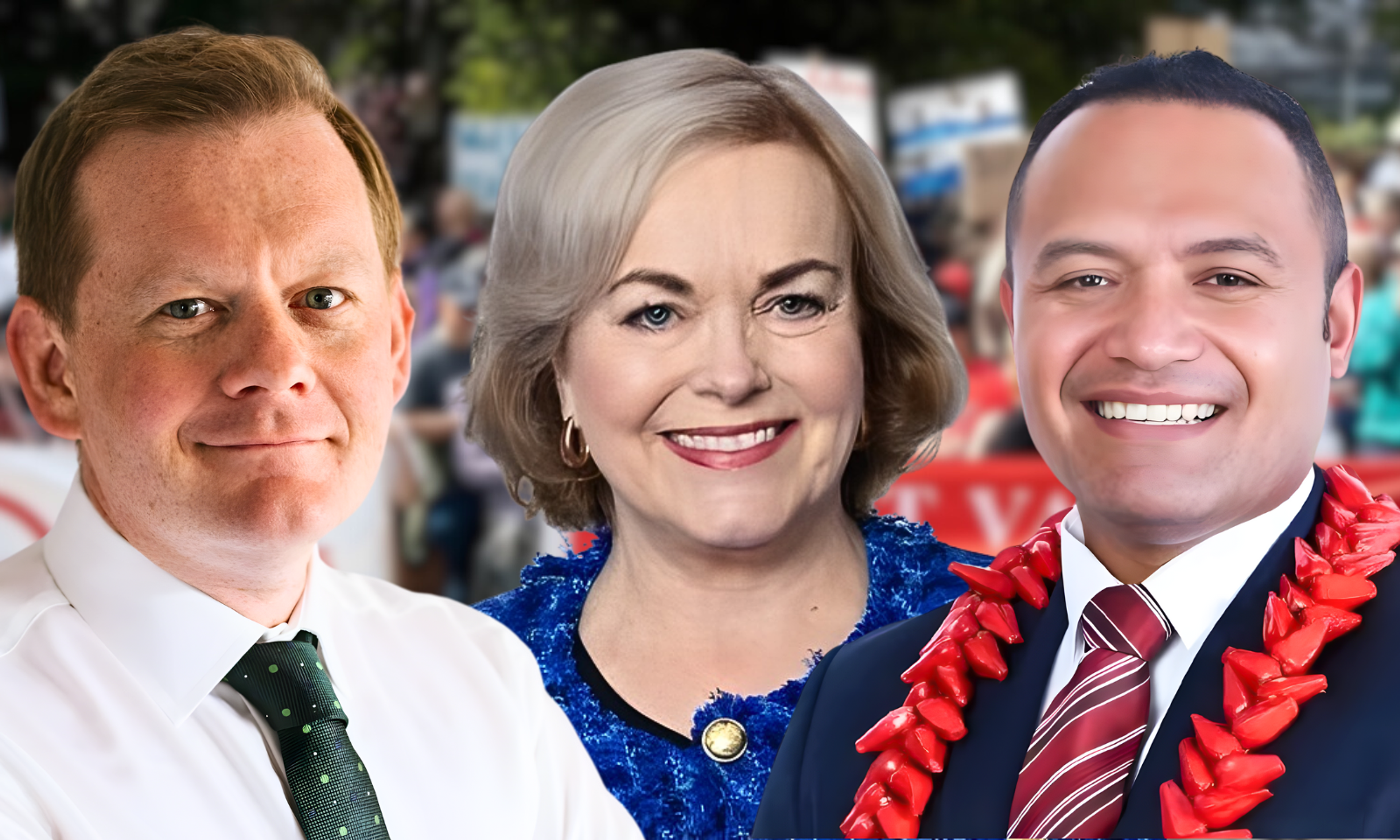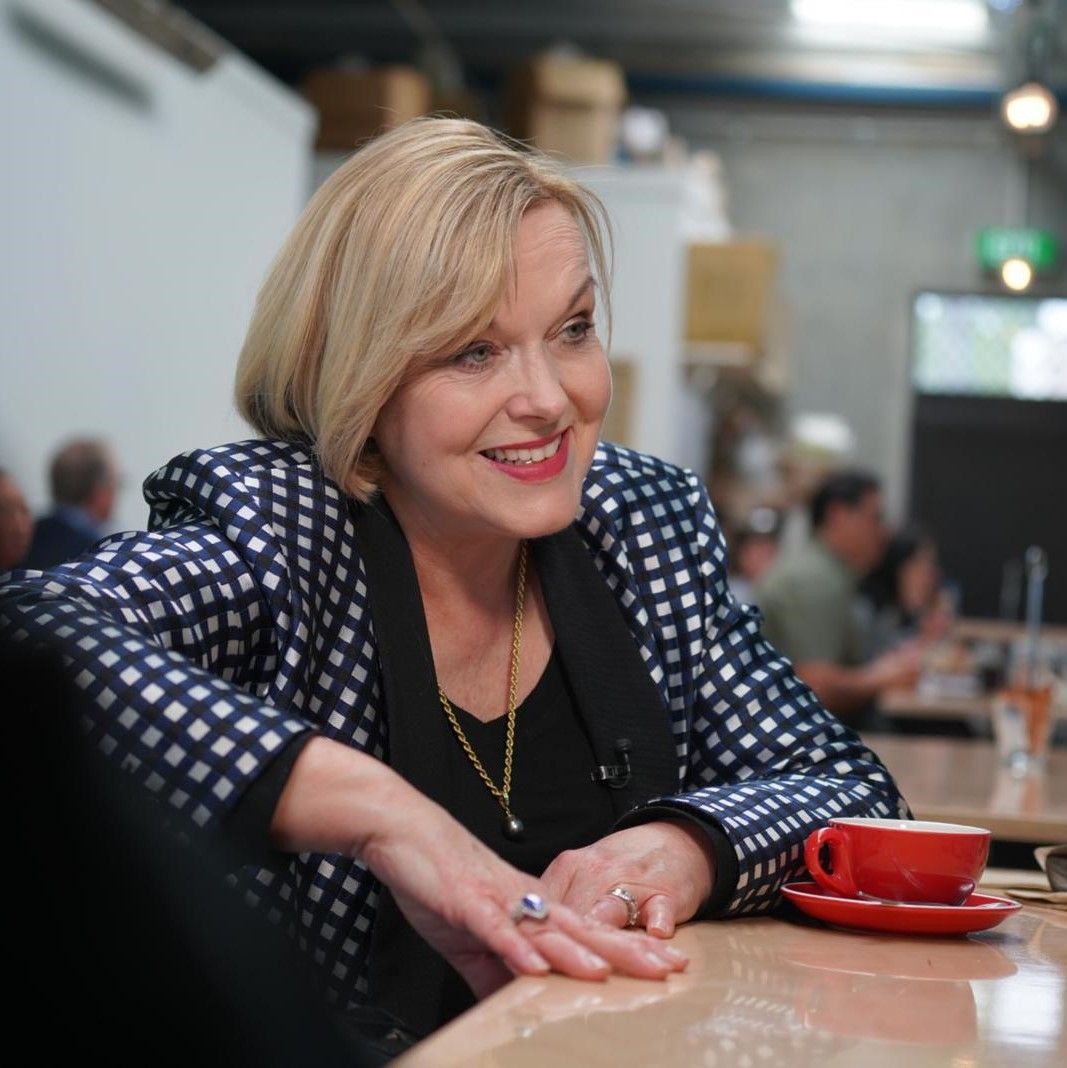

From left, CTU economist Craig Renney, Public Sector Minister Judith Collins, and Pacific health leader Dr Anae Neru Leavasa.
Photo: Composite PMN/Various
Pacific doctor urges dialogue as 100,000 workers prepare for major strike action
Public Service Minister Judith Collins calls the strikes “unwarranted,” while economist Craig Renney and Pacific doctor Dr Anae Neru Leavasa say workers are doing it tough.


‘Shot put queen’ Dame Valerie Adams leads Pacific pride at NZ's Halberg Awards 2026

Pacific digital-finance push continues despite global crypto volatility


Fiji fast-tracks needle programme as new study shows HIV cases surging at record pace

‘Shot put queen’ Dame Valerie Adams leads Pacific pride at NZ's Halberg Awards 2026

Pacific digital-finance push continues despite global crypto volatility

A senior Pacific doctor is urging the government to sit down with workers, as more than 100,000 public sector staff prepare for Thursday’s nationwide megastrike.
Dr Anae Neru Leavasa, a clinical director and general practitioner based in South Auckland, and former Labour MP, says this week’s strike action shows just how tough conditions have become across sectors like health and education.
Speaking with Pacific Mornings host William Terite, Leavasa says frontline staff are “doing the mahi” through a cost-of-living crisis and deserve genuine engagement from ministers.
“It’s a very tough time for our primary care, secondary care and our teachers and so forth, so it’s where the government needs to do their bit.
“Our people are working so hard … there needs to be that negotiation, sitting down and doing the mahi and coming to some form of agreement,” he says.
According to the New Zealand Council of Trade Unions (CTU), the strikes on 23 October are expected to see more than 100,000 workers take industrial action across the country, including teachers, nurses, doctors, firefighters and other public sector staff.
Watch Dr Anae Neru Leavasa's full interview below.
It will be one of the largest combined stoppages in recent memory, with schools closing, elective surgeries and outpatient appointments postponed, and emergency services operating on skeleton rosters.
Public Service Minister Judith Collins says the Government “regrets the impact” the industrial action will have on patients, students and families, but maintains it is “unfair and unwarranted.”
In an open letter to New Zealanders, Collins says the strike appears “politically motivated by the unions” and insists the Government has “acted in good faith” by offering pay increases in line with inflation.
“We value nurses, doctors and other health workers whose dedicated care every day supports patients, just as we value teachers, principals and teacher aides,” Collins says.
“But the Government also has a responsibility to manage the country’s finances carefully, especially when money is tight.”
She says public debt ballooned after COVID-19, with interest costs alone reaching $8.9 billion in the last financial year, “more than the total spent on Police, Corrections, Justice, Customs and Defence combined.”

Minister of Public Services Judith Collins calls the strike action politically motivated. Photo/Facebook
The minister says the government has made multiple pay offers, some of which were rejected before being put to members.
Collins also outlined the Government’s latest pay proposals, including base-salary increases that would lift most teachers above $100,000 within a year, and a 5 per cent two-year rise for senior doctors alongside a $40 million recognition fund. Nurses would receive increases of between 2 and 11 per cent over the next two years.
However, CTU economist Craig Renney says the strike is not politically orchestrated, saying it is the natural outcome of policies that have squeezed real incomes.
Speaking with Fala Haulagi on PMN Tuvalu, Renney stresses that the stoppages are coming from different sectors rather than a single coordinated campaign.
“It’s not a joint action. These people aren’t working in a coordinated way. There are strikes happening on the same day from different industries. During Covid, we all thought they were heroes, we applauded them. Yet a few years later, these are the same people who are apparently too political, who are striking for no reason and who should just get on with the job. It’s just not fair,” he says.
Renney says public-sector staff are being offered “derisory” pay rises at a time when inflation and rents remain high.
Watch Craig Renney's full interview below.
He warns that the disruption will have measurable economic effects, similar to those seen overseas.
“When the NHS (National Health Service) went on strike in the UK, it changed the GDP statistics for that country. It will make an enormous difference here, kids won’t be in school, doctors and nurses won’t be delivering medical services.”
But Renney believes the strikes are part of a larger story about economic inequality and stagnating wages.
He says 400,000 New Zealanders are now on a main benefit and another 400,000 want more work but cannot find it.
“Unemployment for Māori communities is 10 per cent. Unemployment for Pasifika communities is 12.2 per cent. For 15- to 24-year-old Pasifika, unemployment is 26.6 per cent. So no wonder they’re getting on aeroplanes and leaving the country.”
According to Statistics NZ, the net migration loss from New Zealand to Australia for the year to December 2024 was 30,000 people, the largest since 2012.